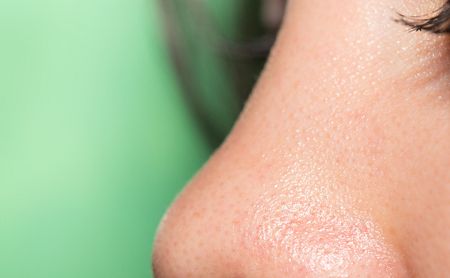Senses Related to Smell May Be Predictor of Parkinson’s

A chemical sense related to smell, called the trigeminal system, may help researchers understand which people who lose their sense of smell will later develop Parkinson’s disease.
Parkinson Canada is supporting this research through a $45,000, yearlong grant, given to Johannes Frasnelli, PhD, of l’Université de Québec á Trois-Rivières, in Canada. Frasnelli’s research career has focused on how understanding smell improves understanding of how the brain works.
“I want to know to what extent looking at the sense of smell helps us to understand how the brain works, and how different parts of the brain work,” Frasnelli said in a press release.
Although up to 95% of people with Parkinson’s lose their ability to smell a decade or more prior to other symptoms, roughly 20% of people in the general population do, too, for unrelated causes.
Knowing how to tell these groups of people apart could enable doctors to begin Parkinson’s treatments years earlier, before the nerve cells that control movement grow damaged or die.
The trigeminal system is closely related to smell but senses a distinct set of qualities. This system serves different structures such as the tissues around the mouth and nostrils, the tongue or teeth and gums. “This sensory system allows us to perceive the spiciness of hot pepper or the freshness of mint,” Frasnelli explained.
Even though people with Parkinson’s can’t smell scents, he said, they can identify “the freshness of plants like eucalyptus, or the spiciness of chili peppers.” In contrast, people who lose their sense of smell in ways unrelated to Parkinson’s appear to also have defects of the trigeminal system.
Frasnelli uses magnetic resonance imaging to look for different patterns of brain activity in people who have Parkinson’s, people who have lost their sense of smell for reasons other than Parkinson’s, and unaffected, healthy people.
Frasnelli first came into contact with Parkinson’s disease while working in a retirement home in his native Switzerland.
Now, he says, “I know a lot of people with the disease, and relatives of those people, and I see how difficult Parkinson’s disease is.”
His research into how smell informs our understanding of brain function grows from his earlier work on the electrophysiology — electrical patterns found in biological tissue — of brain and olfactory (smell) impairments in Parkinson’s.
He hopes to leverage this pilot project into something larger in the future.
“It’s the generous support for pilot grants that really helps us to come up with studies that have a certain statistical power, that allow us to look into our research question with a certain depth,” Frasnelli said. “This is crucial to allow us to go to the big granting agencies to apply for the larger grants.”
Frasnelli also hopes to extend his research to understanding how the loss of smell related to COVID-19 fits into that related to Parkinson’s. Many people who have had the infection lost their smell and Frasnelli speculates that in the coming decades, some of them also will show Parkinson’s symptoms.






